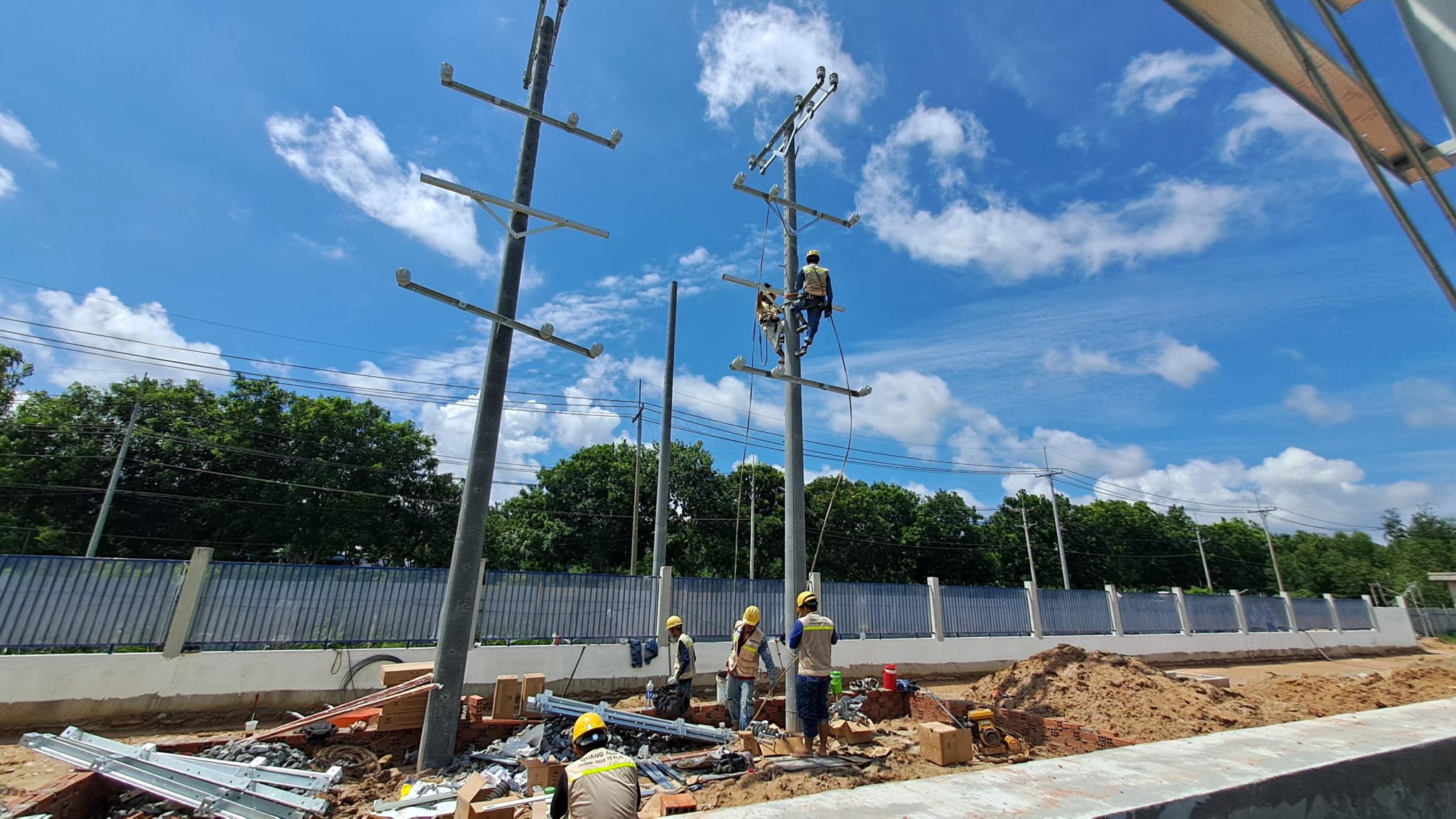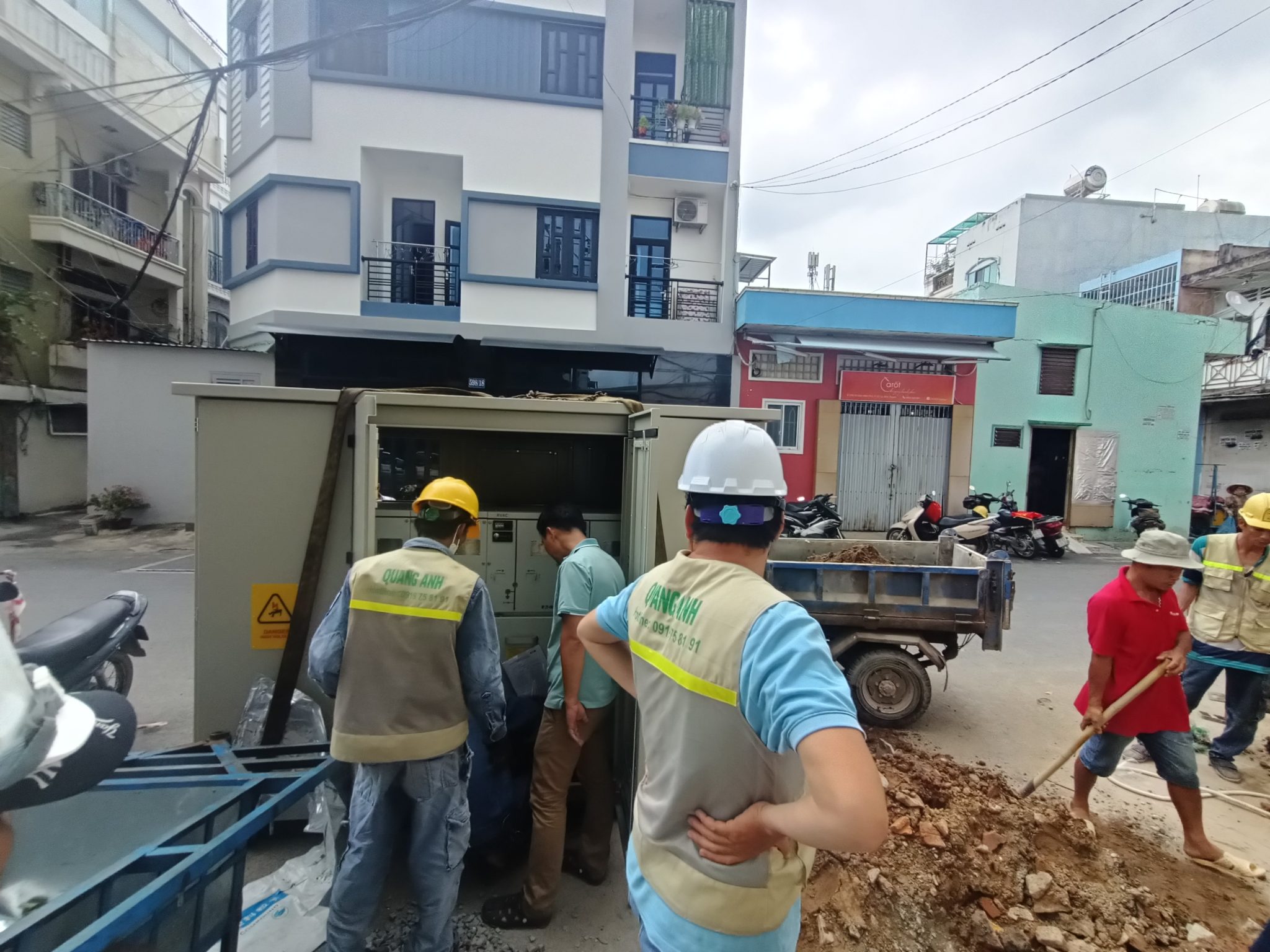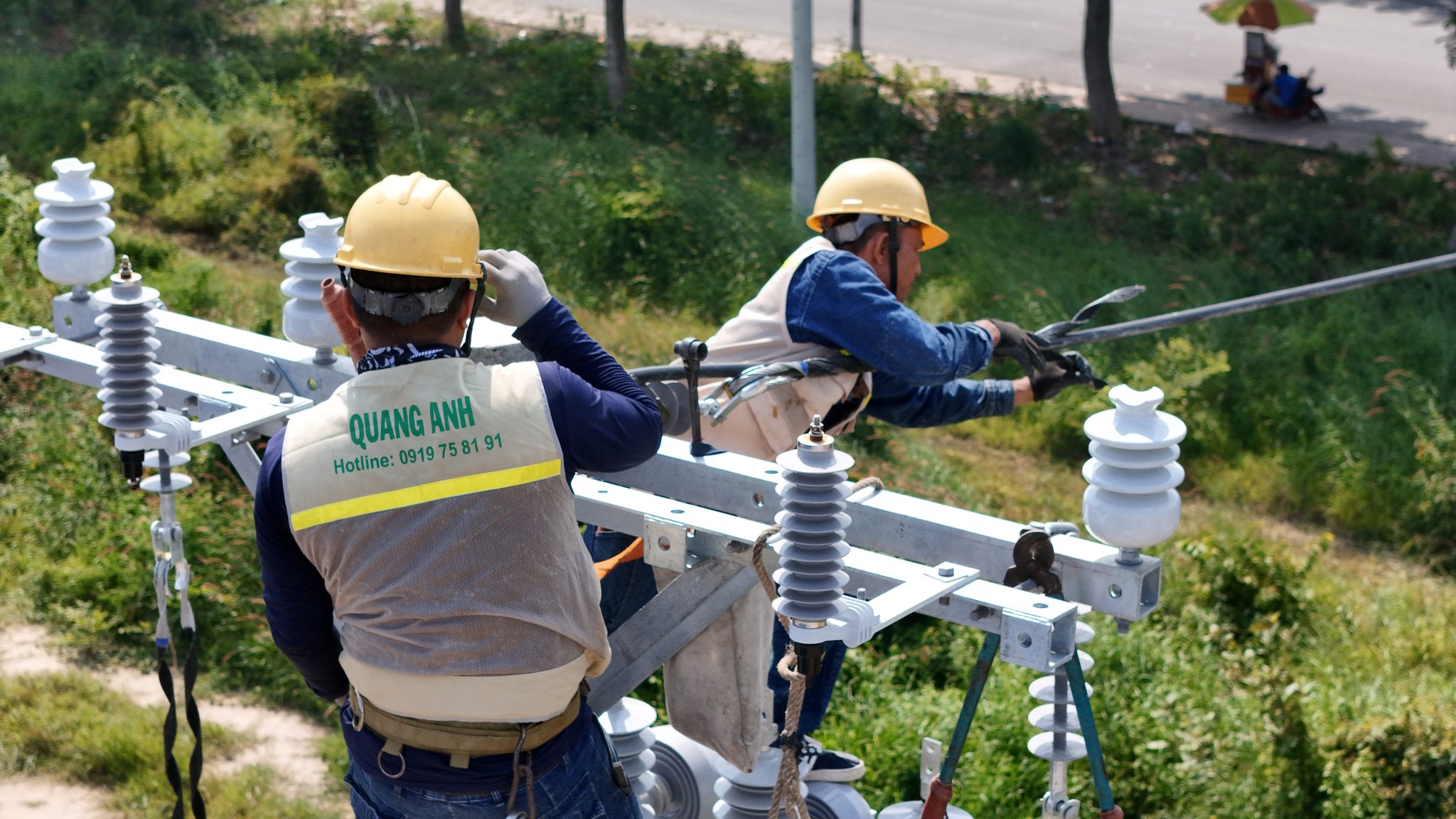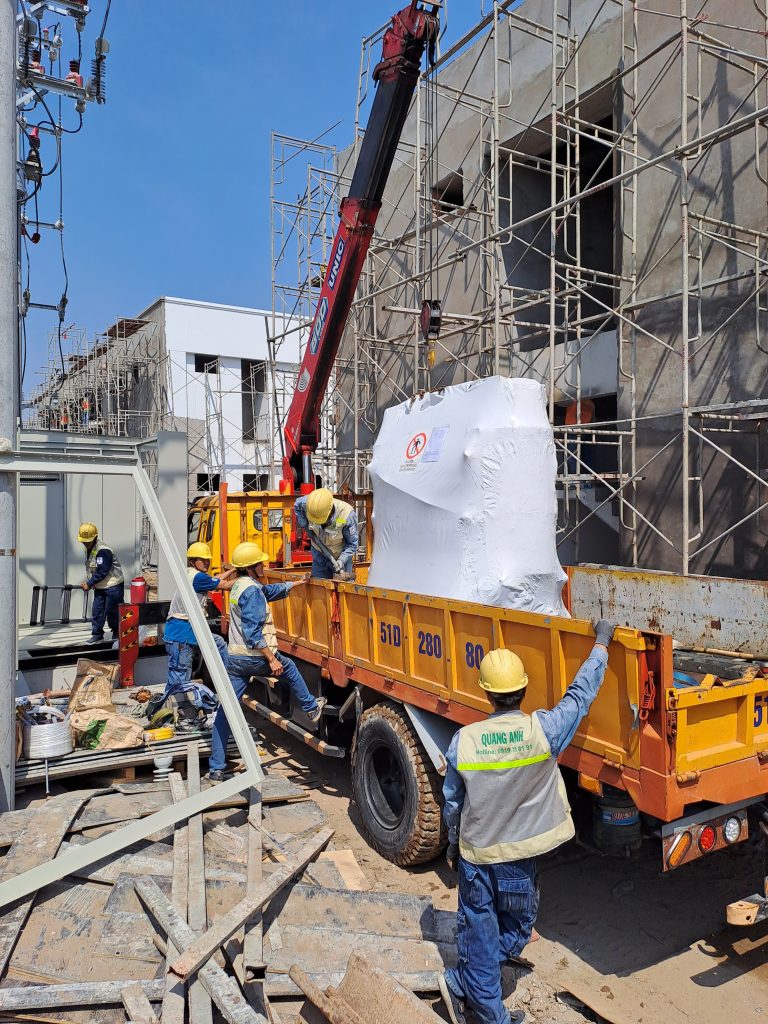News
Investment Costs for a 120kW Electric Vehicle Charging Station and Expansion Opportunities
The investment cost for a electric vehicle charging station 120kW includes many factors such as equipment, construction, site, and operation. To get a clearer view of the necessary investment level, we will examine each component in detail.
Necessary equipment for a 120kW electric vehicle charging station
The charging post is the most important part of a 120kW electric vehicle charging station. The cost for this equipment ranges from 415 – 420 million VND for a single charging post. Some sources show that the price may range from 200 – 350 million VND for ultra-fast DC chargers 120-180kW, potentially including two charging ports. Prices vary depending on the brand, features, and technical standards of the equipment. The 120kW charging post is typically designed to support multiple types of electric vehicles, providing fast and safe charging, and is a foundation for efficient charging system investment.
To set up an efficient electric vehicle charging station, equipment and necessary systems must be carefully selected to meet the 120kW power capacity. The central component of the station is the direct current (DC) charger, playing a key role in fast charging directly into the vehicle battery without an internal converter, thereby minimizing charging time.
The system of diverse connection ports such as CCS 2 and CHAdeMO is integrated to support charging for various electric vehicle models, allowing the charging station to serve multiple vehicles simultaneously. Additionally, an intelligent charging management system ensures power supply adjustment and management appropriate to the battery capacity, protecting equipment by cutting off power when the battery is fully charged.
To ensure user and equipment safety, safety protection measures such as overload protection, circuit breakers, insulation, and water resistance are integrated. Particularly for high power stations, a cooling system is optional, helping maintain operating temperature within allowed limits, protecting equipment from overheating.
To supply sufficient power to the station, a 380V three-phase power source must be established, accompanied by high-capacity cables to sustain large loads, ensuring a stable power supply. Additionally, the ISO 15118 or IEC 61851 standard communication protocol is applied for effective interaction with electric vehicles, enhancing security during charging.
The equipment for a 120kW charging station must also withstand various environmental conditions, capable of indoor and outdoor installation with a robust protective shell, resisting weather factors and impacts.

Installation and construction process of electric vehicle charging station infrastructure
The construction of a 120kW electric vehicle charging station infrastructure includes several careful steps. The total cost of installation and construction typically ranges from 300 – 500 million VND. Construction work includes installing substations, wiring, electrical cabinets, and other related infrastructure such as canopies and signage. Additionally, electrical safety costs such as lightning protection also need to be considered to ensure safe charging station operation.
The installation and construction process of electric vehicle charging station infrastructure is a series of proper steps to ensure stable and safe operation for the electric vehicle system. Firstly, engineers conduct site inspections and evaluate needs at the proposed location. This helps determine the scale and necessary technical characteristics for the electric vehicle charging station.
Next, power calculation and system design play an important role. Engineers need to calculate capacity based on surveys and actual needs. Choosing suitable equipment such as cables, charging ports, electrical cabinets, and protective devices (brands like ABB, Schneider, Eaton) to meet safety and efficiency requirements. This part includes designing the electrical system diagram and detailed installation layout.
A cost estimation is prepared by calculating the material value, equipment, labor, and other incurred expenses. This ensures that the investment plan for charging station construction is reasonable and financially feasible.
An important aspect not to be overlooked is compliance with standards, technical, and legal regulations. The system must ensure fire protection safety according to Decree 136/2020/ND-CP, especially for stations inside or in areas at risk of fire. Outdoor stations, on the other hand, must meet electrical and environmental safety requirements.
During the installation and construction phase, workers install equipment according to the design, connect standard-compliant electricity, and install protective devices like lightning protection and emergency power cut-off. Checking the data transmission system if available is necessary to ensure synchronized connectivity.
After completion, testing, acceptance, and trial operation processes are conducted to ensure systems operate effectively. Overall system checks, electrical safety functions before official operation.
Ultimately, regular maintenance, operation, and monitoring are indispensable to ensure stable operation, prevent incidents. Applying remote monitoring technology enhances station management efficiency.
Installing an electric vehicle charging station requires strict adherence to planning and technical standards, ensuring safety and optimizing power usage, especially for stations using solar energy.

Operation and maintenance costs of a 120kW electric vehicle charging station
Operation and maintenance costs are crucial factors affecting the efficiency of a 120kW electric vehicle charging station. Equipment maintenance can cost around 3 – 10 million VND/month per charging post. Additionally, the monthly electricity consumption cost is also substantial, estimated from 2,000 to 6,000 VND/kWh. Charging station management software is also an indispensable factor, with costs ranging from 50 – 200 million VND annually. These costs need to be managed effectively to optimize charging station operation.
The operation cost of a 120kW electric vehicle charging station is an important component that business leaders need to consider carefully for optimal economic efficiency. Key factors affecting costs include:
- Electricity consumption: This cost occupies a major proportion of total charging station operation costs. Electricity prices at charging stations range from 3,000 – 10,000 VND/kWh, depending on agreements and consumption scale.
- Equipment maintenance: Regular maintenance of components like three-phase electrical systems, DC charging ports with 120kW power, and management software is crucial. Regular maintenance helps minimize failures and prolong equipment lifespan.
- Fire Safety (PCCC): Outdoor charging stations can save more on fire safety costs compared to indoor stations, which require additional safety inspection measures.
Other factors can also influence operation costs:
- Charging station location: The cost of renting space in major cities is generally higher, impacting total costs.
- Electrical infrastructure status: If there is a need to upgrade lines or underground systems, investment and operational costs can increase significantly.
- Three-phase power supply: A stable electrical system with backup power capacity is necessary to ensure continuous charging station operation.
Finally, the payback period for a 120kW electric vehicle charging station investment is estimated between 2-3.5 years when overall operation costs are managed effectively. This is a necessary factor for investors to evaluate the long-term benefits when deploying this charging station system.

Investing in a 120kW electric vehicle charging station brings technical and strategic benefits. It not only promotes the use of renewable energy but also provides potential business opportunities, optimizing operation and maintenance costs effectively.
Contact QuangAnhcons via hotline +84 9 1975 8191 for detailed consultation on 120kW electric vehicle charging station investment.
QuangAnhcons specializes in providing consulting and installation services for 120kW electric vehicle charging stations with a professional process and optimized costs, ensuring long-term benefits for customers.

 Tiếng Việt
Tiếng Việt 简体中文
简体中文 Deutsch
Deutsch 日本語
日本語 한국어
한국어 ไทย
ไทย Русский
Русский Français
Français
